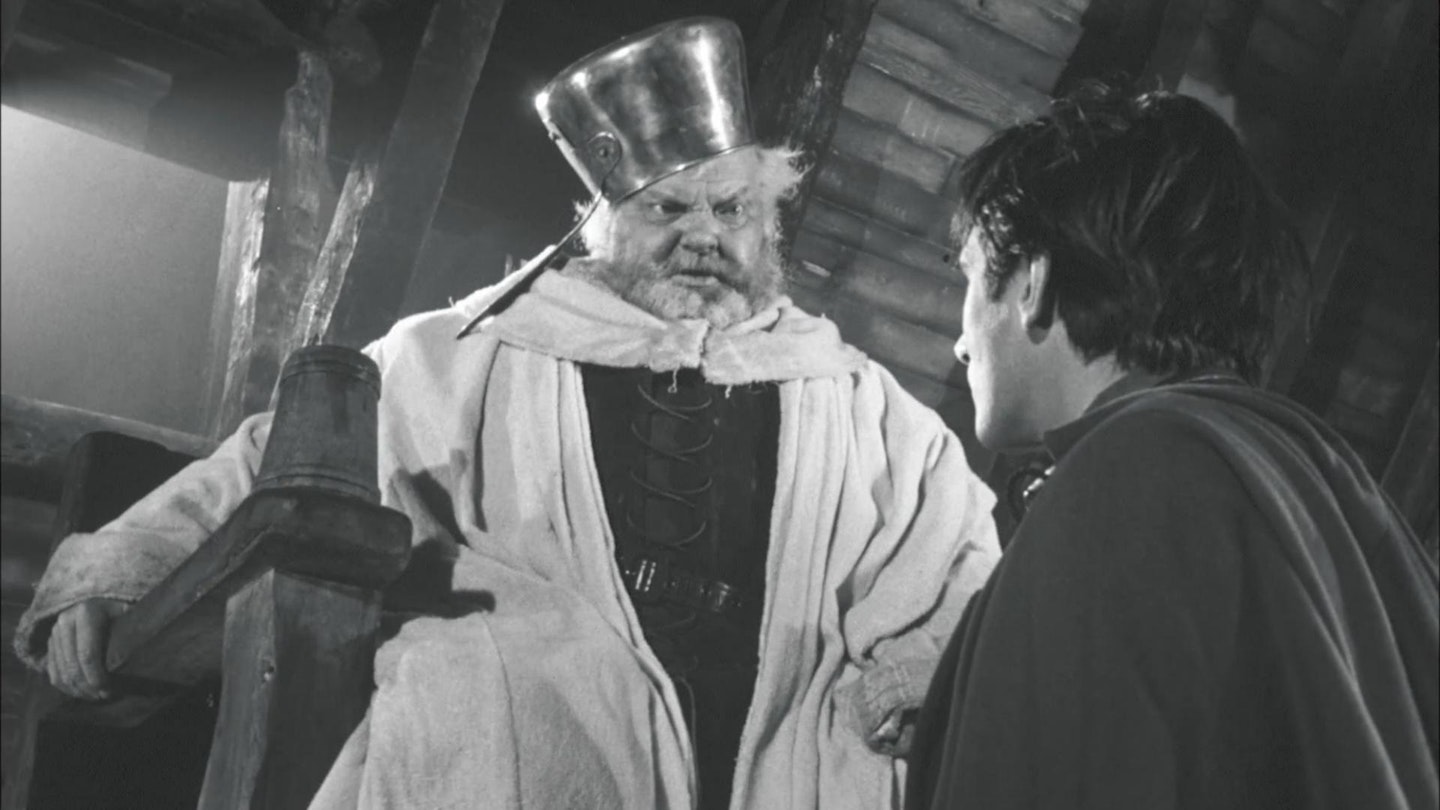Orson Welles first played Falstaff in a school production and his fascination with the incorrigible rogue inspired the bold attempt to meld eight Shakespearean plays into the stage epic Five Kings, which bankrupted the Mercury Theatre in 1939. Twenty-one years later, Welles opened in Belfast with the equally ambitious Chimes at Midnight, which combined elements from Richard II, both parts of Henry IV, Henry V and The Merry Wives of Windsor with extracts from Holinshed's Chronicle to create a lament for the passing of Merrie England.
However, this study of maverick potential being crushed by Machiavellian pragmatism was very much about Welles himself, who clearly equated the Lancastrian monarchy with the Hollywood studio system that had cast him adrift. Moreover, it's possible to draw comparisons between Welles's final triumph and his first, as the disappointment and dejection that Falstaff feels in his old age recalls that of Charles Foster Kane after the failure of his bid to mentor Susan Alexander.
What's even more apparent is that, despite his customary battles with budgets and schedules, Welles had lost none of his vitality, either as an actor or director. Having burst through the screen as the reckless roister-doister, his display of quiet dejection as Hal severs his ties is deeply touching, while the use of a moving, deep-focussed camera around the Spanish sets and locations is sublime. What's more, the depiction of the confusion and carnality of combat in the Battle of Shrewsbury sequence (which took three weeks to edit) ranks alongside anything achieved by Eisenstein or Kurosawa.
Yet, there are flaws here. The soundtrack is often indistinct and the poor synchronisation is as distracting as the stylistic clashes between the meticulously mannered John Gielgud, the laconic Keith Baxter, the fulsome Margaret Rutherford (as Mistress Quickly) and the anachronistically modern Jeanne Moreau (as Doll Tearsheet). But nothing detracts from the melancholic majesty of this maligned masterpiece.
